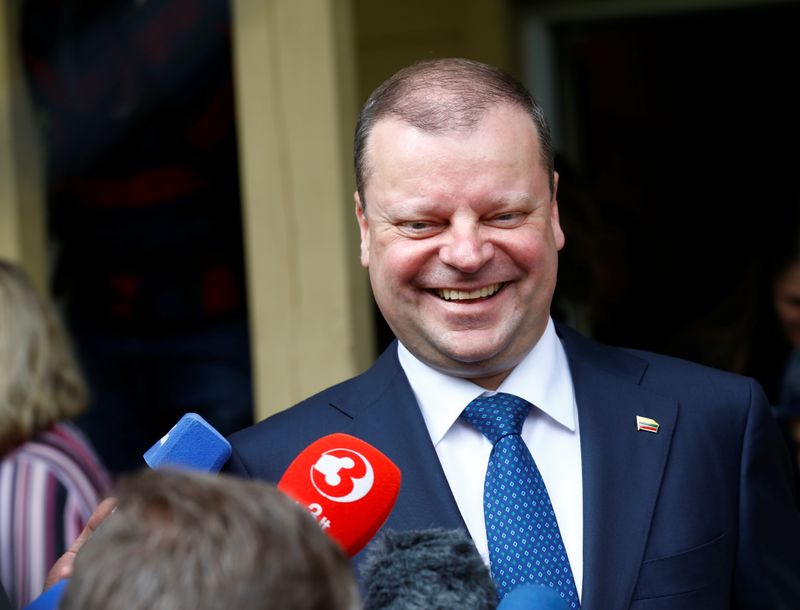By Andrius Sytas
VILNIUS (Reuters) - Lithuanians will be encouraged to bring their own pens to minimize infection risk at Sunday's parliamentary election seen as a vote of confidence on Prime Minister Saulius Skvernelis' handling of the coronavirus crisis.
The centrist Farmers and Greens party, an agrarian grouping that leads Skvernelis' ruling coalition, is neck-and-neck in opinion polls with the centre-right Homeland Union, which has roots in the 1980s anti-Soviet independence movement.
With support roughly 15% for both, and 15 other parties on the ballot, another coalition is inevitable but its makeup uncertain.
Many in the Baltic Sea state of less than 3 million are aggrieved at income inequality despite brisk economic growth since Lithuania joined the European Union in 2004.
A fifth of people were at risk of poverty in 2019, mostly the elderly, which was the same figure as a decade ago, according to the state statistics authority.
However, Lithuania's relative resistance to the economic impact of coronavirus curbs has helped compensate a previous slump in support for the government over corruption allegations.
The economy decreased 4% year-on-year in the second quarter of 2020, the second best result in the EU. The central bank attributed that to a prompt and short lockdown, generous state support and relatively unaffected trading partners.
DRIVE-THROUGH VOTING
Lithuania has reported 8,714 infections - including a record 205 new cases on Saturday - and 103 deaths.
Mindful of contagion, election officials have asked voters to mark ballots with their own pens.
For early voting this week, they also set up a drive-through centre and booths in public squares. Teams in protective costumes have been visiting the 32,000 voters self-isolating at home to collect their ballot.
Many Lithuanians are keenly watching the government and President Gitanas Nauseda's response to a crackdown on anti-government protests by neighbouring Belarus president Alexander Lukashenko following a disputed election.
Lithuania, and neighbours Latvia and Estonia, were the first EU members to impose sanctions on Lukashenko.
Vilnius has also given shelter to opposition leader Sviatlana Tsikhanouskaya who fled her homeland after the Aug. 9 ballot her supporters say was rigged.
Under Lithuania's hybrid election system, half of the 141-member parliament will be elected on Sunday in a proportional vote. The remaining lawmakers are elected in constituencies, with a run-off vote for the top two candidates in each of them scheduled on Oct. 25.

Results are expected around 2100 GMT on Sunday.
